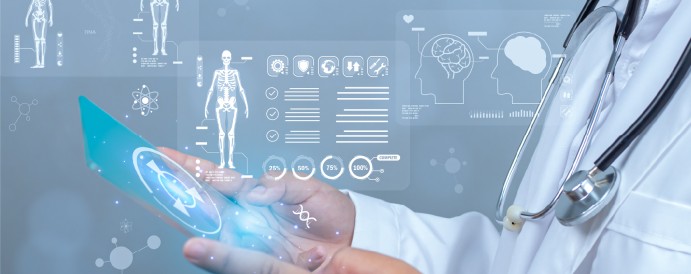
Artificial Intelligence as a Service enables smarter healthcare with scalable AI tools that improve patient care and reduce costs.
Artificial Intelligence as a Service (AIaaS) is emerging along with other models of cloud computing such as SaaS, PaaS, IaaS, and FaaS. AIaaS helps healthcare providers and startups access AI tools. They can do this without spending money on expensive infrastructure. AIaaS is an emerging but important service model in healthcare, enabling advanced diagnostics, process automation, and improved patient care.
In this blog, we’ll discuss what AIaaS means for healthcare, its types, and benefits. Moreover, how do Epic and Cerner leverage the use cases of AIaaS.
Artificial Intelligence as a Service provides cloud access to AI solutions. These include predictive modeling, language processing, and image recognition. Healthcare organizations can use these solutions to spot patient risks. They help gain insights from clinical data and improve diagnostic accuracy.
AIaaS also enhances operational efficiency, supports real-time decisions, and data management. AIaaS replaces internal infrastructure requirements. This lets healthcare providers focus on giving timely and personalized care.
According to the Grand View Research, the global AIaaS market will reach USD 16.08 billion in 2024. They expect it to grow at a CAGR of 36.1% from 2025 to 2030. This growth stems from a higher demand for automation, data analysis, and cloud computing in healthcare and other industries.
AI as a service allows health systems to use advanced features without building them. Services support important healthcare workflows, like clinical support and patient engagement. Below are the key types of AIaaS commonly applied in healthcare settings.
Healthcare workers use AI chatbots and virtual assistants to automate patient interactions. These tools manage routine tasks such as scheduling appointments and refilling prescriptions. They assist patients when linked to EHR portals and health apps, without reaching out to clinical staff for patients’ information. Natural Language Processing (NLP) helps these AI bots and digital assistants understand patients’ queries and concerns and provide relevant answers.
AIaaS APIs offer modular AI functions like medical text analysis and image classification. They support critical workflows, such as automating clinical documentation and improving image interpretation. Health IT developers can use these APIs to speed up feature development without building models from scratch.
Cloud-based ML platforms supply the core resources and toolsets needed to efficiently create, train, and launch models. Frameworks like TensorFlow and PyTorch support managed AI services, enabling healthcare data scientists to develop clinical decision-support tools.
The platforms handle tasks such as computing resources, version control, and scalability, allowing teams to focus on model development rather than infrastructure management.
Low-code and no-code AI systems in healthcare speed up model development. They need less complex programming, but users still need technical skills. Users must understand clinical data and follow healthcare workflows. They must install AI models with precision. These systems suit healthcare staff with data or analytical skills.
Data labeling in healthcare involves marking clinical data. This includes medical images, lab results, and patient histories. This process readies the data for AI systems. It keeps the data organized, accurate, and helpful. This is important for diagnosis, treatment planning, and predictive analytics.
Usually, this process mixes human experts with machine learning systems. Experts review and confirm the data, and AI models learn from it. This approach enhances the reliability of AI systems in real healthcare settings.
© 2024 Crivva - Business Promotion. All rights reserved.